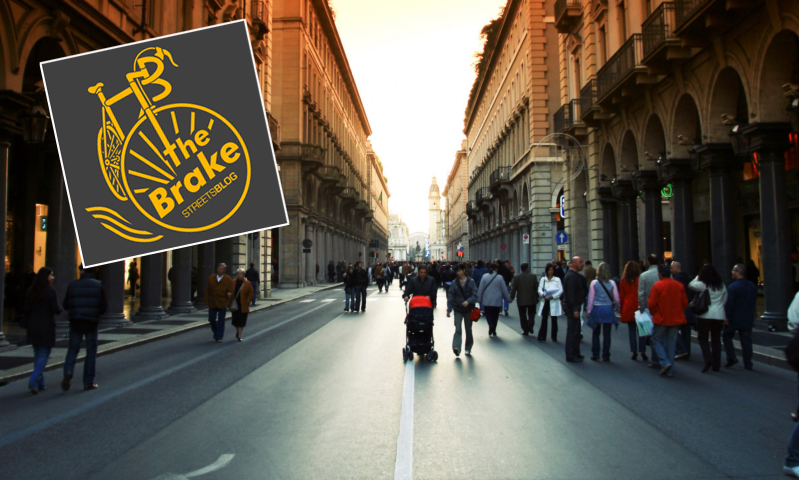Last time on The Brake, we chatted with authors Robert Braun and Richard Randell about why automobility isn't really about cars at all — and how it's become what they call a "totalitarian system" that touches virtually every part of our lives.
Today, we bring you part two of that conversation, and dive into the difficult question of what a world beyond automobility might look like — and how on Earth we might get there. Would it be good enough to just make automobility less destructive by equipping cars with batteries and automated driving features? How different would our world look if the evidence of automobility's violence wasn't immediately hidden from the public eye? And could the tobacco industry serve as an example for regulating not just the car itself, but the culture that surrounds it?
Listen in below, on Apple Podcasts, or anywhere else you listen, and check out Post Automobility Futures today. A short, lightly edited excerpt of our conversation is below.
Kea Wilson: I hear from people a lot even who .... say 'well, okay, but if you look at the trend lines, cars are getting safer every single year. We see fewer and fewer deaths every single year. And technology's the reason why. Sure, the last two years were strange outliers because deaths actually rose, and sure, pedestrian deaths have been rising for about 15 years now. But we have even more technology coming to save us ... Moreover, we have electric cars coming to save the planet... I'm curious: Will the bad things about 'automobility' as you define it go away, or not go away, if we make those technological changes?
Richard Randell: Well, I think there's several points that need to be made. The first one I would like to make — and this is about both autonomous vehicles and electric vehicles — is that these are simply promises. And I would add, they're made by an industry that has made many promises in the past. It's an industry that has lobbied on behalf of continuing with fossil fuel, and has... denied climate change. I would say there are good reasons to be skeptical of their claims.
But first, with electric vehicles... there's considerable GHG emissions that are required simply to build an electric car. Another thing that's important to remember is that people who are buying electric cars, most of them already have a car that is a fossil fuel car. And in all probability, that fossil fuel cars will just be sold to someone else, and it will move along the chain. In the United States, it will probably make its way south of the border; in Europe, these automobiles will make their way eastward and possibly eventually make their way to Africa.
So buying an electric car might make you feel better, but this is not really the appropriate unit of analysis. The unit of analysis is not how much CO2 emissions I might be producing, or that a particular nation might be producing; the unit of analysis is, essentially, [how much these automobiles produce over their lifetimes] ..[Mewanwhile,] almost 100 million new cars are produced each year, and the population of the Earth increases by jut 120 million each year. That's births minus deaths, so almost as many cars are made as the population of the planet increases each year.
The point is, most of these cars are fossil fuel-powered, and most of them will remain fossil fuel-powered. So even if we have some grand electric future where the entire fleet of the planet have been substituted with electric vehicles, by then it's going to be too late. It seems very clear that we need to get some of the current cars off the road.
The larger point we're making, though, is about the main consequences of these sort of visions. So when we're talking about the autonomous future, the electric future — it is isn't here. This is another example of a vision of automobility. And what [a vision] does is assure us that we no longer need to worry. We don't need to worry about violence, and we don't need to worry about automobility-caused climate change; that the solution is here, and it has been found, and so we don't need to concern ourselves with it. And the consequence of this is that this will result simply in more and more automcobility.






